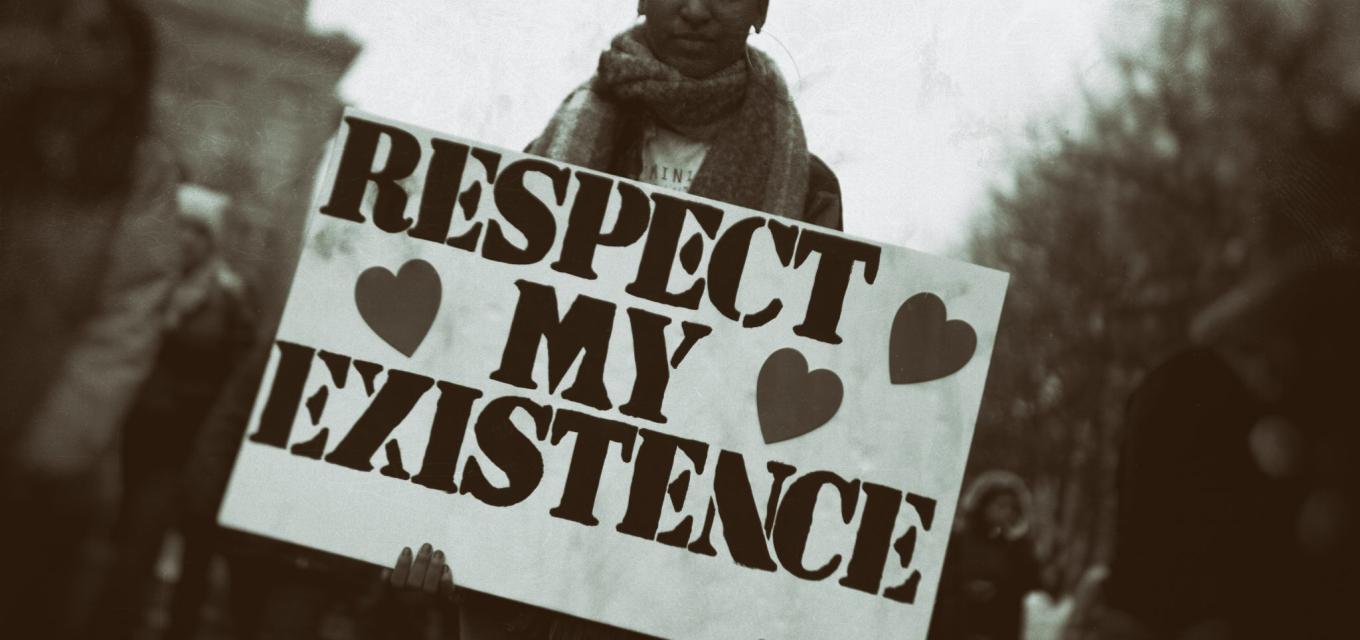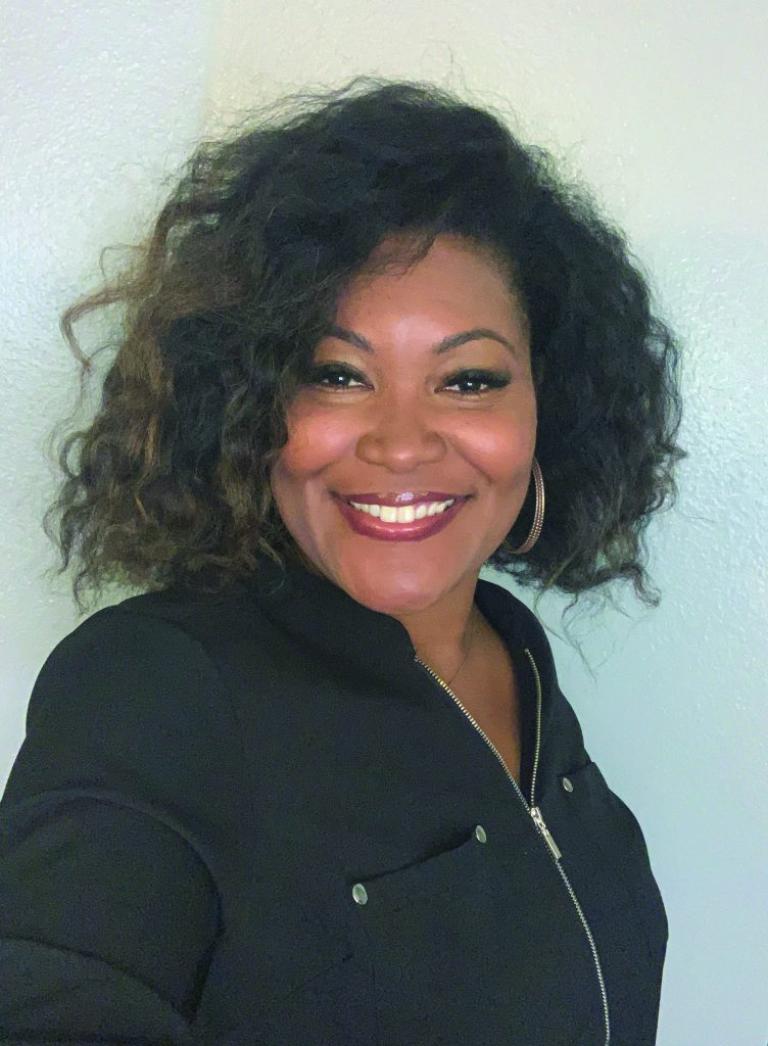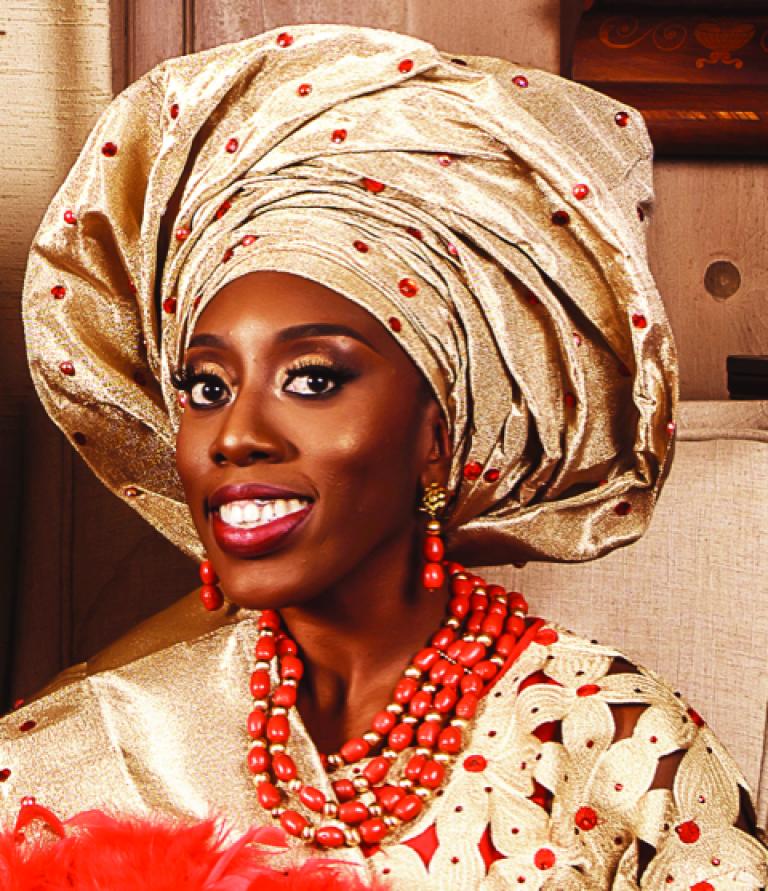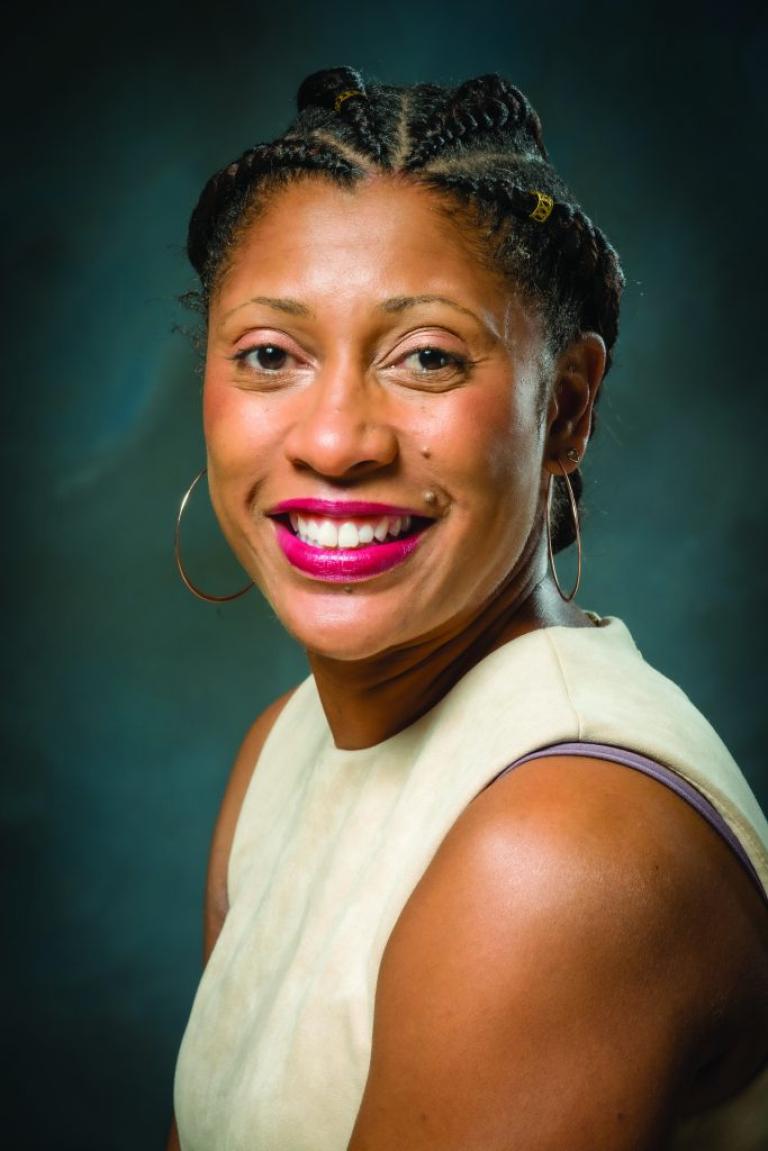2021 Spring / Summer

Talking about activism and empowerment in sports
Tucker Center Talks podcast hosts series of expert opinions.
Tucker Center Talks is a popular podcast presented by the Tucker Center for Research on Girls & Women in Sport. Now in its third year, the podcast, co-sponsored by WiSP Sports, features invited guests, timely critiques, the latest research, and dialogue around the most important issues facing girls’ and women’s sports today. The podcast is hosted by Nicole M. LaVoi, senior lecturer in the School of Kinesiology and director of the Tucker Center.
Last October, the center hosted “Black Women in Sport: Voices of Resistance and Athlete Activism” as its fall distinguished lecture. This event featured a panel of experts highlighting the power, importance, and voices of resistance of Black women in the fight for social justice. The event was such a success and raised even more questions that several subsequent Tucker Center Talks podcast episodes were devoted to individual panel members.
“Due to the overwhelming and positive feedback we got about the panel, and the limited time we had together, I wanted to explore the panelist’s insights in more depth,” LaVoi says. “Our podcast was the perfect avenue which allowed us to unpack this topic. Selfishly, I also wanted more time with each of them!”Dr. Gyasmine George-Williams appeared on the November 5 show to speak on “Women of Color in Sports Leadership.” George-Williams is an assistant professor at the University of La Verne in California as well as the founder of GGW Consulting. Because of her passion for activism, she has created several evidence-based models to center the experiences and leadership of activists of Color and disenfranchised groups. These models include the Black Athlete Activist Leadership Model and the Activism Growth Model (AGM).
“There’s so few academics that can translate theory into practical application and you hit this one on the head,” LaVoi told George-Williams, pointing out that AGM blends Black feminist theory, critical race theory, Maslow’s hierarchy of needs, and the community cultural wealth model.
AGM is built on seven levels. At its foundation is Begin Your Soul Work. This is where you identify your motivation for advocacy and activism. As you climb up through the levels, you will Know Your Role, Choose Your Vehicles, Find Your People, Locate the Barriers, Practice Radical Compassion, and at the top, Change the World.
“We’ve always used the system of race and class to define people…”
“Find the People, I put that in the middle because as you’re moving forward and continuing to find yourself, it is pure gold when you find your community and your people,” George-Williams says. “That will sustain you as the barriers come. If you have your people, your community, that’s the game changer because we’re literally fighting for equity and equality.”
George-Williams says that AGM is designed to be assessable for everyone and can be returned to if needed. “That was my goal, for it just not to be on the shelf in one realm,” she says. “But anyone who needs it can take it and it can be utilized effectively for them.”
Dr. Joyce Olushola Ogunrinde, an assistant professor of health and human performance and scholar activist at the University of Houston, was the guest on December 3 and spoke more in depth about the points she made as a panelist regarding the voices of resistance of Black women in activism, particularly in sport.
“Society has been built on categorizing people,” she says. “We’ve always used the system of race and class to define people and it just happens to be now that Black people are bearing the burden of that system.”
Add gender to this mix and you now have more avenues of discrimination. “The literature tells us it has been called a double burden of race and gender but I prefer to look at it from an intersectional lens,” Olushola Ogunrinde says.
In the context of sport, Black activism is seen as a masculine domain and females tend to be ignored. Is the solution to move sport to a more feminized model? Joyce says no. “I am not for the feminization of anything,” she says. “I feel like we’re just asking for the other side of the wrong coin. They are both predicated on this understanding of what men and women should be—that’s already wrong.”
She says if we are really talking about empowering people, we have to look at the problem from that viewpoint. “I feel like our fight has to be on the human level,” she says. “How do I engage with another person?”
Dr. Akilah Carter-Francique, the director of the Institute for the Study of Sport, Society, and Social Change at San Jose State, was the following week’s guest. While on the panel, she had spoken about rage and how it can be used as the path to healing and empowerment. She expanded on this idea in the podcast.
Two of her muses are musician Lauryn Hill and civil rights activist Audre Lorde, both of whom incorporate anger and rage from social injustices to illuminate their work. Carter-Francique does the same.
 |
 |
 |
Drs. Gyasmine George-Williams, Joyce Olushola Ogunrinde, and Akilah Carter-Francique visited the Tucker Center Talks podcast to continue their conversations from “Black Women in Sport: Voices of Resistance and Athlete Activism,” a recent panel discussion hosted by the center.
“To experience racism, to experience sexism, and other isms in between, I’ve utilized that rage in many ways to serve as a space where I can cultivate knowledge,” she says. “Lorde says this notion of anger is information because of how you’re mistreated, so you’re learning from those experiences.”
But should anger be used as a source of empowerment? Carter-Francique thinks it can and uses the grief model (shock, denial, anger, depression, bargaining, acceptance, and empowerment) as an example. She says everyone should have the freedom to express anger and not have it denied on the path through grieving.
“If we’re allowed to go through that human emotion experience, and move through shock and denial and anger—move through and navigate through that depression—and come out of it on the other side toward a space of empowerment, we can begin to use those energies, those lived experiences, not necessarily to accept what had happened but to understand and to better navigate the road ahead,” she says.
Story by Kevin Moe | Photos courtesy of FLiCKR.com Johnny Silvercloud; Olushola Ogunrinde by Nenaji Media Weddings; Carter-Francique by San Jose State University, Robert Bain | Spring/Summer 2021
View more Tucker Center Talks podcasts: cehd.umn.edu/tuckercenter/news/podcast/default.html
-Kevin Moe